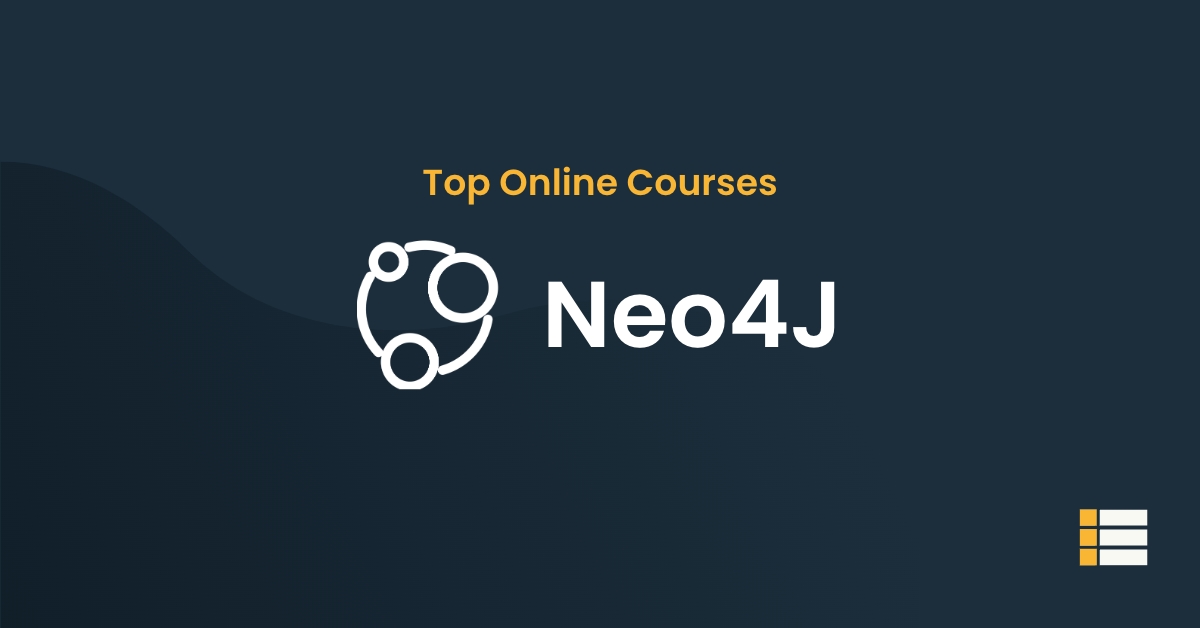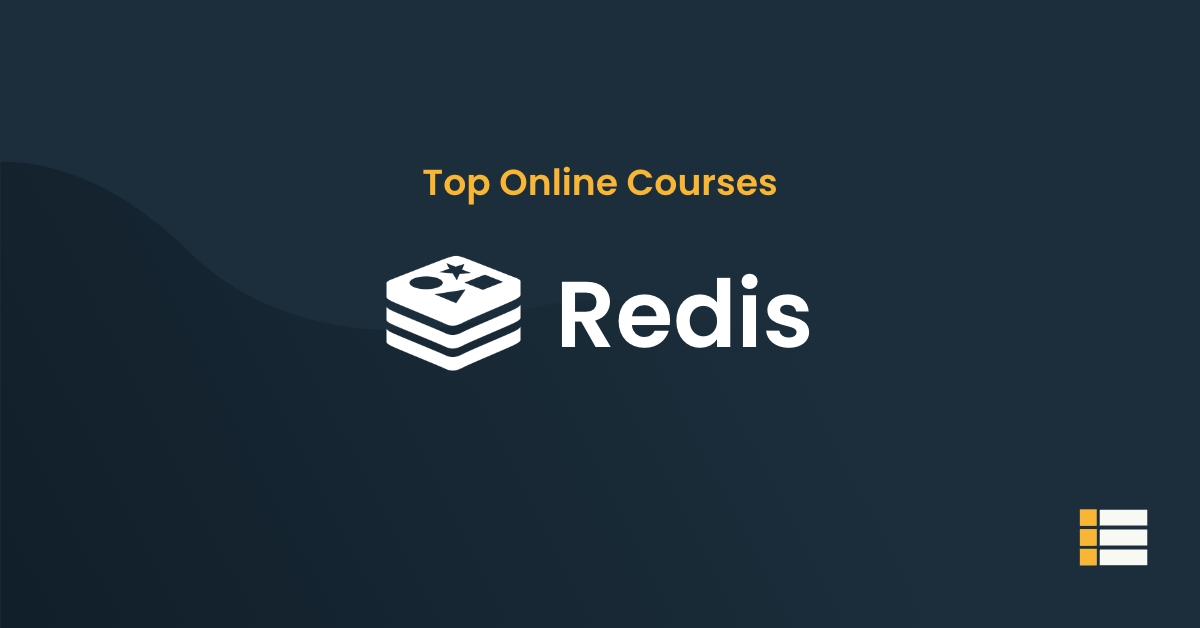If you’re looking to stay ahead of the competition in the world of big data, then learning Apache Cassandra is essential.
Apache Cassandra is an open-source, distributed NoSQL database that is renowned for its scalability, high availability, and robust performance.
Table of Contents
Learning Apache Cassandra Online: A Student’s Guide
What is Apache Cassandra?
Apache Cassandra is an open-source distributed NoSQL database management system.
It is designed to provide scalability, high performance, and availability through its wide area network ( WAN ) and peer-to-peer architecture.
It uses a data model, which allows it to store large amounts of data that is distributed across a network of servers.
This database system is suitable for applications that require very high availability, scalability, and performance.
At the core of Apache Cassandra is its masterless peer-to-peer architecture. This architecture allows for the nodes in the network to communicate with each other in a distributed manner.
The data is spread across the nodes and stored in column-oriented tables, which allows for high read and write performance.
Cassandra utilizes a replication strategy to replicate data between nodes for increased availability and scalability.
It also supports multi-data center replication and can be used to provide disaster recovery capabilities across different geographical locations.
Apache Cassandra also provides its own query language, called CQL (Cassandra Query Language), which makes it easier to interact with the database. CQL provides a flexible and powerful data structure, which allows the user to perform complex queries on large datasets.
Apache Cassandra Use Cases
Here are some of the most common use cases for Apache Cassandra.
- Apache Cassandra as a Data Warehouse: Organizations use Cassandra as a data warehouse for big data analytics. With its scalability and strong reliability, Cassandra can store large volumes of data with ease. Additionally, the data stored in Cassandra can be accessed quickly for analysis, allowing for real-time insights.
- Apache Cassandra for Cloud Computing: Cassandra can be deployed in the cloud for organizations that need a highly available and scalable database. Cassandra’s scalability and flexibility make it ideal for handling data from cloud applications. Additionally, Cassandra is easy to manage and maintain, making it an attractive option for cloud computing.
- Apache Cassandra for IoT: Cassandra can be used to store and analyze large amounts of data from connected devices. With its scalability and flexibility, Cassandra can process and analyze data from thousands of devices in real-time. Additionally, Cassandra’s fault tolerance ensures that data is stored safely and reliably.
- Apache Cassandra for Time-Series Data: Cassandra is often used to store and analyze time-series data. With its scalability and fault tolerance, Cassandra can process large amounts of data quickly and accurately. Additionally, Cassandra can handle data that is highly variable, such as data from sensors.
- Apache Cassandra for Mobile Applications: Cassandra can be used to store and analyze data from mobile applications. With its scalability and fault tolerance, Cassandra can handle large volumes of mobile data with ease. Additionally, Cassandra is easy to manage and maintain, making it an attractive option for mobile applications.
Apache Cassandra Learning Resources
From tutorials to books, there is an abundance of materials available to help those new to Cassandra get started.
- The Cassandra website provides a great list of tutorials for those wanting to learn more about the technology. This includes tutorials for how to install Cassandra and how to use the Cassandra Query Language (CQL). In addition, there are also tutorials for how to manage data in Cassandra, as well as how to use the Cassandra Data Modeler and Cassandra Stress Testing tools.
- Apache Cassandra: The Definitive Guide is a comprehensive guide to the technology. It covers everything from installation and setup to performance tuning and troubleshooting. It also covers topics such as data models, replication and consistency, and how to use popular tools such as Spark and Hadoop with Cassandra. Last but not least, the book includes a guide to the Cassandra Query Language (CQL).
- Intro to Cassandra is another great book for those getting started with Cassandra. It covers topics such as installation, data modeling, and the Cassandra Query Language. It also covers advanced topics such as data replication and scalability.
- DataStax, the creators of Cassandra, provides a comprehensive website with resources for everything from getting started to advanced topics. The DataStax website is a great place to find tutorials and examples of how to use Cassandra.
- The Cassandra User Forum is a great place to ask questions and get answers from experienced Cassandra users. The forum is regularly monitored by Cassandra experts and is a great resource for those just getting started with Cassandra.
- Apache Cassandra Training Online Course and Certification by Intellipaat
- Apache Cassandra Database – Full Course for Beginners by freecodecamp on youtube
- Cassandra 3 for Developers – Pluralsight
- Cassandra Tutorial for Beginners: Learn in 3 Days – Guru99
- How to Install Cassandra Tutorial + Basic Commands – Hostinger
- Cassandra and relational databases – Cassandra Video Tutorial – Linkedin
Frequently Asked Questions
Is DataStax Cassandra certification free?
No, DataStax Cassandra certification is not free. It is offered at a range of levels with corresponding prices, and each level has different requirements and benefits. The DataStax Cassandra certification includes a hands-on exam on a cluster of Cassandra databases and is administered online.
Is Cassandra free?
Yes, Apache Cassandra is free and open source software, meaning it is free to download, use, and modify. It is distributed under the terms of the Apache Software Foundation's Apache 2.0 License.
Is Cassandra easy to learn?
Yes, Apache Cassandra is relatively easy to learn. It has a straightforward data model and architecture, and its query language, CQL, is quite similar to SQL. Moreover, Cassandra can be installed and configured quickly, and it is highly scalable and fault tolerant. With Cassandra, developers don't need to learn complex distributed systems concepts, making it an ideal choice for those new to distributed databases.
What is Apache Cassandra used for?
Cassandra is used for applications that require continuous availability, high scalability, and high performance. It is used in a wide variety of use cases, like real-time data streaming, IoT, fraud detection, and more.
Is Cassandra faster than Redis?
Apache Cassandra is a distributed NoSQL database, while Redis is an in-memory data structure store. While both are fast for their respective use cases, Redis is generally considered to be faster than Cassandra for most operations. Redis does not have the same durability and robustness guarantees that Cassandra offers, so it is better suited for smaller data sets and simpler operations.
Is Cassandra NoSQL?
Yes, Apache Cassandra is a NoSQL database. Cassandra does not support SQL queries and instead uses its own query language, CQL (Cassandra Query Language).
Is Apache Cassandra still used?
Yes, Apache Cassandra is still currently used by many large companies. Companies such as Apple, Netflix, and eBay use Cassandra to store and manage large amounts of data. They find that it’s especially useful for applications that require high availability and scalability. In addition, many organizations are using Cassandra to power their real-time applications.
Is Cassandra better than MongoDB?
Generally speaking, Apache Cassandra is a better option if you need to work with large amounts of data that is distributed across multiple data centers or cloud availability zones. On the other hand, MongoDB is a better option if you need to work with more flexible data models, easy scalability, and complex query operations. Ultimately, the choice between Cassandra and MongoDB should be made based on the specific needs of the application.
Conclusion
In conclusion, Apache Cassandra is a powerful distributed database system that offers great performance, scalability and availability.
Learning Apache Cassandra online can be a great way to get acquainted with the technology and develop the skills necessary to work with it.
Through online tutorials and resources, it is possible to get a good introduction to the different aspects of the system, from installation to working with queries and programming.
By taking the time to learn the basics of Apache Cassandra, developers can get a good head start on building applications that can take advantage of its capabilities.

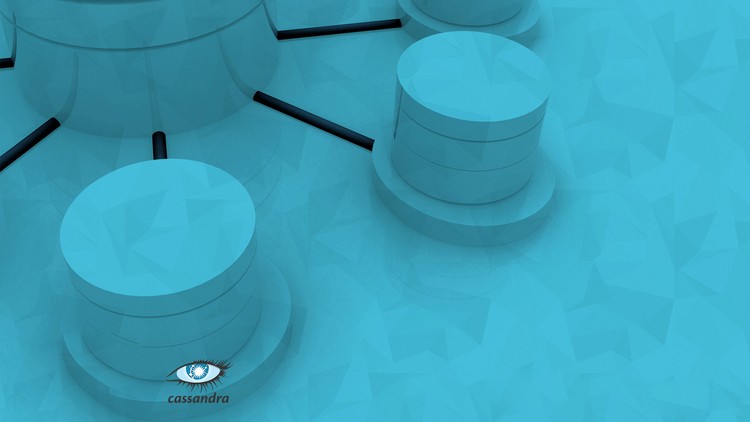
 Online course by
Infinite Skills
Online course by
Infinite Skills

 Online course by
Loony Corn
Online course by
Loony Corn

 Online course by
Navdeep Kaur
Online course by
Navdeep Kaur

 Online course by
eduCBA (CBCPL)
Online course by
eduCBA (CBCPL)

 Online course by
Cristian Scutaru
Online course by
Cristian Scutaru

 Online course by
Cristian Scutaru
Online course by
Cristian Scutaru

 Online course by
Bigdata Engineer
Online course by
Bigdata Engineer
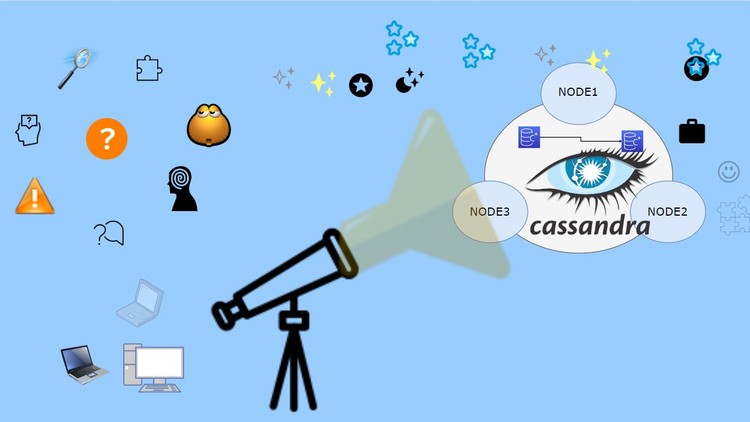
 Online course by
Mustafa Aksoy
Online course by
Mustafa Aksoy
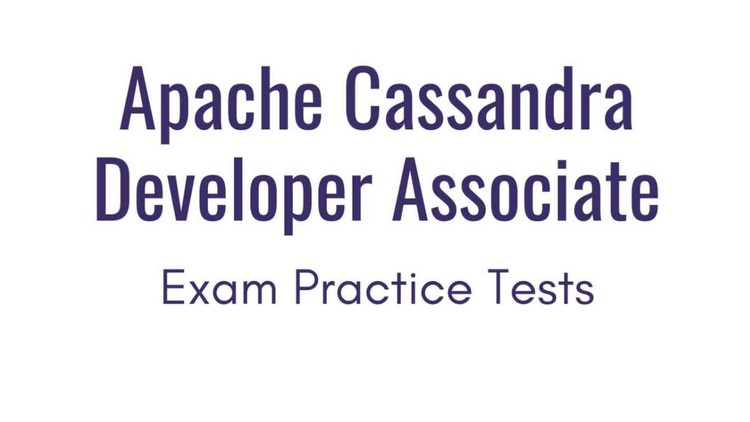
 Online course by
Mohammed Muzammil Sargiro
Online course by
Mohammed Muzammil Sargiro

